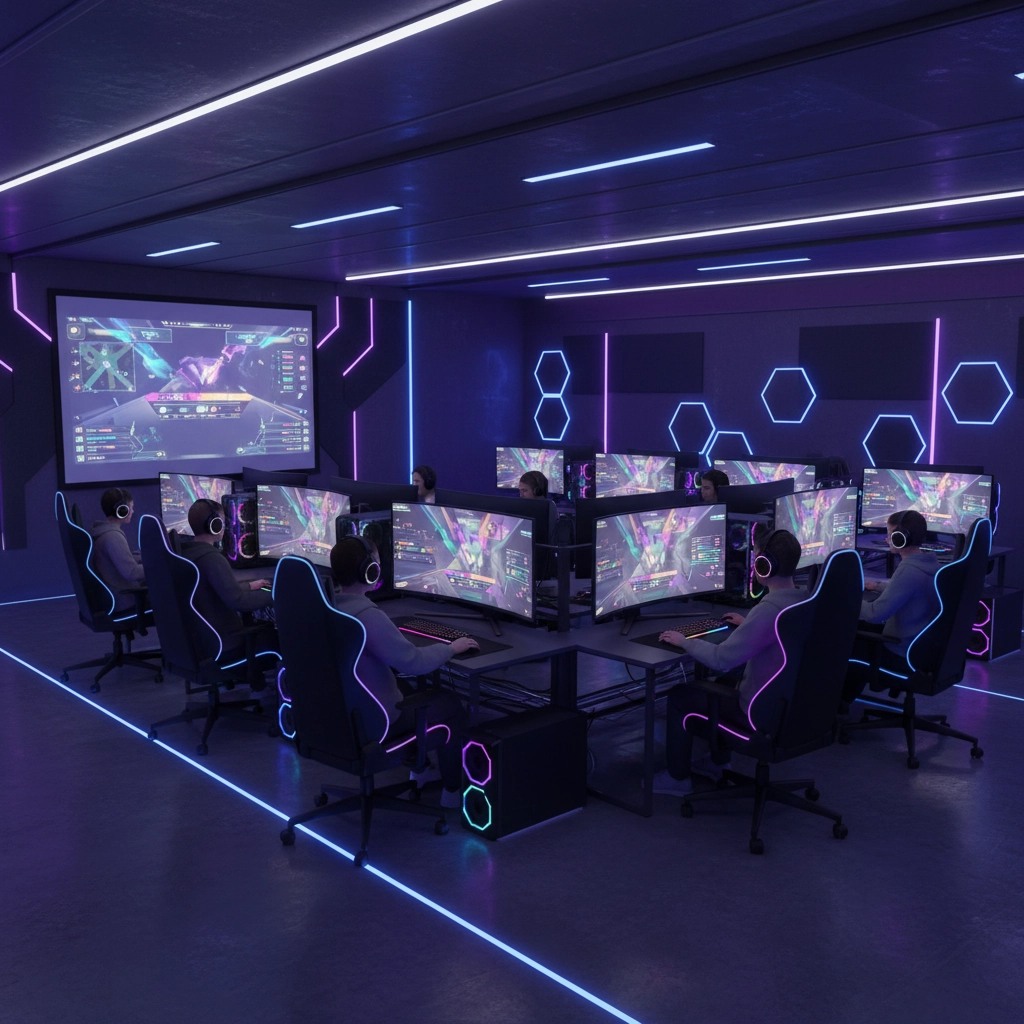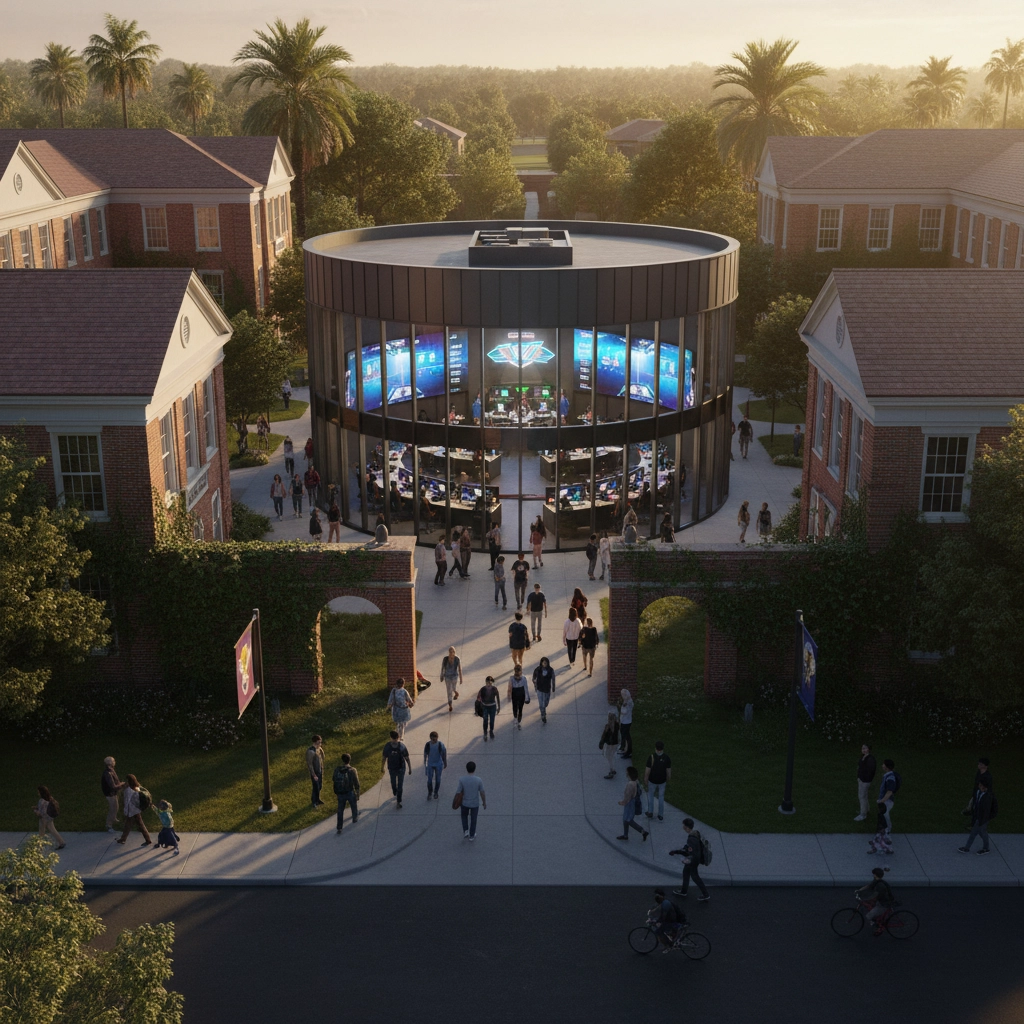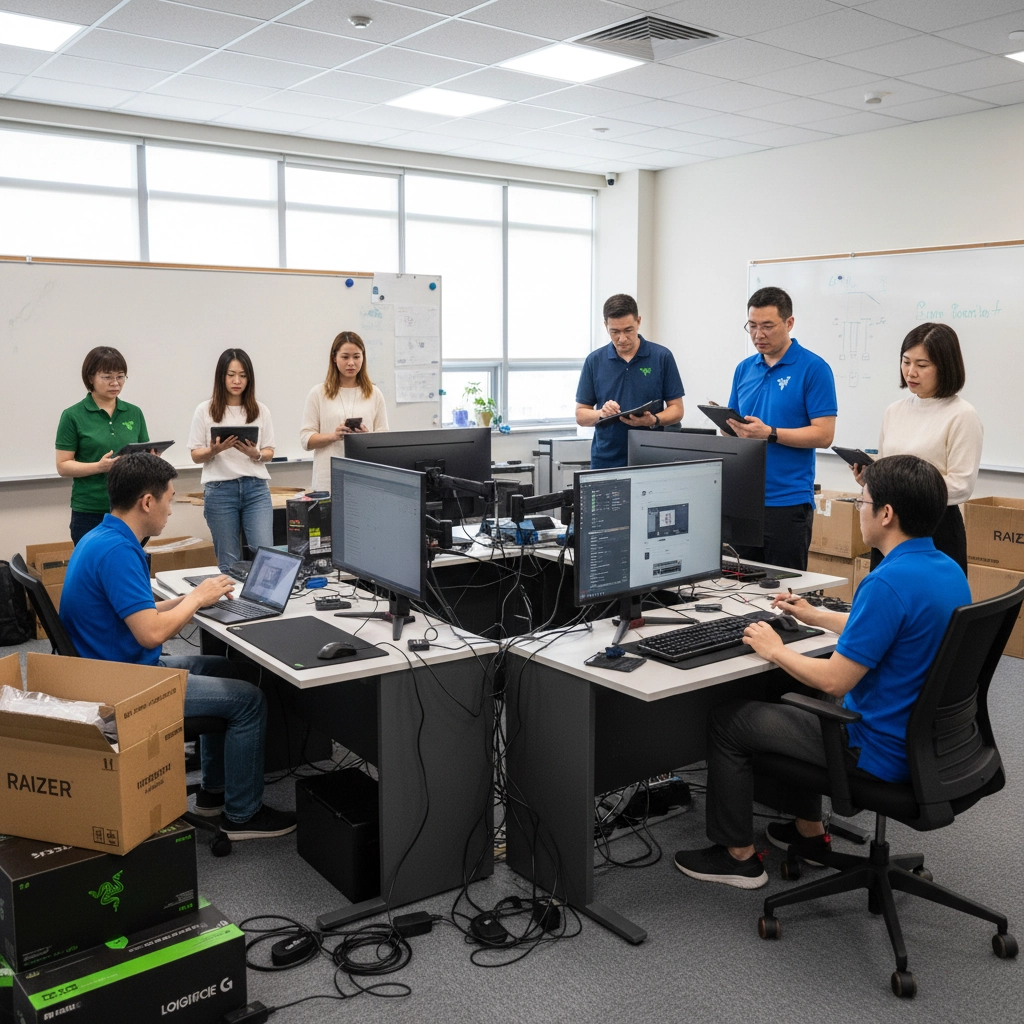Fanz announces the launch of Esportspod.GG, a specialized division focused on integrating competitive gaming into high school education systems. This initiative targets 23,000 high schools across the United States through a comprehensive program called "Education by Simulation."
The platform connects educational institutions with brand sponsorship opportunities for esports pods, which function as organized gaming teams and clubs within school environments. These pods serve multiple purposes beyond traditional gaming, incorporating educational elements that align with modern workforce development requirements.
Understanding Esports Pods
Esports pods represent structured gaming environments within educational settings. Each pod consists of standardized equipment, connectivity infrastructure, and organized team structures that facilitate competitive gaming experiences.
The pod system includes high-performance gaming computers, specialized peripherals, and network connectivity optimized for competitive play. Schools receive complete hardware packages that eliminate equipment disparities and ensure fair competition across participating institutions.

Pod configurations accommodate various gaming titles and competitive formats. The standardized approach allows students from different schools to compete on equal footing, with success determined by skill development rather than equipment advantages.
Content creation capabilities are integrated into each pod setup. Students can record gameplay sessions, produce gaming content, and develop digital media skills through the platform's built-in recording systems.
Education by Simulation Methodology
The Education by Simulation program uses competitive gaming as a vehicle for skill development and academic learning. This approach recognizes gaming environments as legitimate educational tools that can teach problem-solving, strategic thinking, and collaborative teamwork.
Simulation-based learning occurs through structured gameplay that mirrors real-world scenarios and decision-making processes. Students engage with complex systems, analyze data patterns, and develop solutions within gaming environments that translate to academic and professional contexts.
The methodology incorporates STEM education principles through game mechanics that require mathematical calculation, logical reasoning, and technical understanding. Students learn coding concepts, architectural design principles, and digital media production through hands-on gaming experiences.
Assessment frameworks measure both gaming performance and educational outcomes. Students receive evaluations based on strategic thinking, communication skills, leadership development, and collaborative problem-solving abilities demonstrated through competitive play.
Targeting 23,000 High Schools
Esportspod.GG focuses on widespread implementation across American high schools, with particular emphasis on underserved communities and institutions lacking access to modern technology resources.
The deployment strategy prioritizes equitable distribution of gaming technology and educational opportunities. Schools receive customized pod configurations based on their specific needs, student populations, and existing infrastructure capabilities.
Implementation timelines account for varying institutional readiness levels and administrative approval processes. The platform provides comprehensive support services to facilitate smooth integration of esports programs into existing educational frameworks.

Geographic distribution ensures representation across urban, suburban, and rural school districts. The program addresses digital divide concerns by providing standardized technology access regardless of local economic conditions or existing school technology budgets.
Partnership agreements with educational authorities streamline approval processes and ensure compliance with academic standards and regulatory requirements.
Brand Sponsorship Integration
The platform facilitates connections between educational institutions and corporate sponsors interested in supporting youth esports development. Sponsorship opportunities extend beyond traditional Name, Image, and Likeness arrangements to include comprehensive program funding and educational partnerships.
Brand partnerships provide financial support for equipment acquisition, facility improvements, and ongoing program operations. Sponsors gain access to engaged student audiences and opportunities to demonstrate corporate social responsibility through educational investment.
Sponsorship packages include various engagement levels, from individual pod sponsorship to comprehensive school program funding. Brands can support specific gaming titles, tournament events, or long-term educational initiatives based on their marketing objectives and target demographics.
The platform ensures transparent sponsorship relationships that comply with educational ethics standards and student protection requirements. All brand partnerships undergo review processes to maintain appropriate boundaries between commercial interests and educational objectives.
Educational Benefits and Outcomes
Participation in esports pods provides measurable benefits for student engagement and academic performance. Research indicates that structured gaming programs improve attendance rates, increase student motivation, and develop transferable skills applicable to various career paths.
Students develop communication abilities through team-based competitive play that requires constant coordination and strategic discussion. These communication skills transfer directly to academic group projects and professional collaboration environments.
Leadership development occurs naturally within team structures as students take on captain roles, coordinate practice schedules, and manage team dynamics. These experiences provide practical leadership training that complements traditional classroom instruction.
Problem-solving skills improve through exposure to complex gaming scenarios that require rapid analysis and creative solutions. Students learn to process information quickly, adapt strategies based on changing conditions, and work effectively under pressure.

Digital literacy advancement occurs through regular interaction with gaming technology, streaming platforms, and content creation tools. Students become proficient with software applications and digital communication methods that are increasingly important in modern workplaces.
Scholarship and Career Pathways
Esportspod.GG connects high-performing students with college scholarship opportunities and professional development pathways within the gaming industry. The platform maintains relationships with universities offering esports scholarships and assists students in navigating application processes.
Current scholarship opportunities range from partial tuition assistance to full-ride programs at institutions with established esports programs. The platform tracks scholarship availability and helps students identify programs that match their academic interests and gaming specializations.
Career pathway guidance includes exposure to gaming industry roles such as game development, tournament organization, content creation, and esports management. Students receive information about educational requirements and professional development steps for various gaming-related careers.
Professional networking opportunities connect students with industry professionals through virtual events, mentorship programs, and internship placements. These connections provide real-world insight into gaming industry operations and career advancement strategies.
Implementation Support Services
Schools receive comprehensive support throughout the implementation process, from initial program planning through ongoing operations management. Support services include technical installation, staff training, and educational curriculum development assistance.
Technical support covers equipment installation, network configuration, and troubleshooting services to ensure reliable pod operations. Schools gain access to dedicated support channels for resolving technical issues and maintaining optimal gaming performance.
Staff training programs prepare educators to supervise esports activities and integrate gaming elements into broader educational objectives. Training covers both technical aspects of gaming equipment and pedagogical approaches for using gaming in educational contexts.

Curriculum development support helps schools create structured learning objectives that align esports activities with academic standards and educational goals. The platform provides template curricula and assessment frameworks that schools can customize for their specific needs.
Measuring Program Success
Evaluation frameworks track both gaming performance metrics and educational outcome indicators to assess program effectiveness. Schools receive regular reports on student engagement levels, skill development progress, and academic performance correlations.
Performance metrics include tournament results, individual skill advancement, and team collaboration effectiveness. These gaming-specific measures provide insights into student development within competitive gaming contexts.
Educational outcome measurements focus on transferable skill development, including communication improvement, leadership growth, and problem-solving advancement. Schools can document how esports participation contributes to broader educational objectives.
Long-term tracking follows student progression through high school and into post-secondary education or career paths. This data helps demonstrate the lasting impact of esports program participation on student development and future success.
Future Development Plans
Esportspod.GG continues expanding program offerings to include additional gaming titles, competitive formats, and educational integration opportunities. Platform development focuses on enhancing user experiences and providing more comprehensive educational tools.
Technology upgrades ensure that pod equipment remains current with gaming industry standards and educational technology requirements. Regular equipment refresh cycles maintain competitive gaming capabilities and prevent technology obsolescence.
Partnership expansion includes relationships with additional educational institutions, corporate sponsors, and gaming industry organizations. These partnerships broaden program reach and provide more opportunities for student development and career advancement.
Research initiatives examine the effectiveness of gaming-based education and identify best practices for integrating esports into academic environments. This research informs program improvements and supports broader adoption of educational gaming approaches.
For more information about Fanz and our expanding esports initiatives, visit fanz.us or explore our global esports programs.
